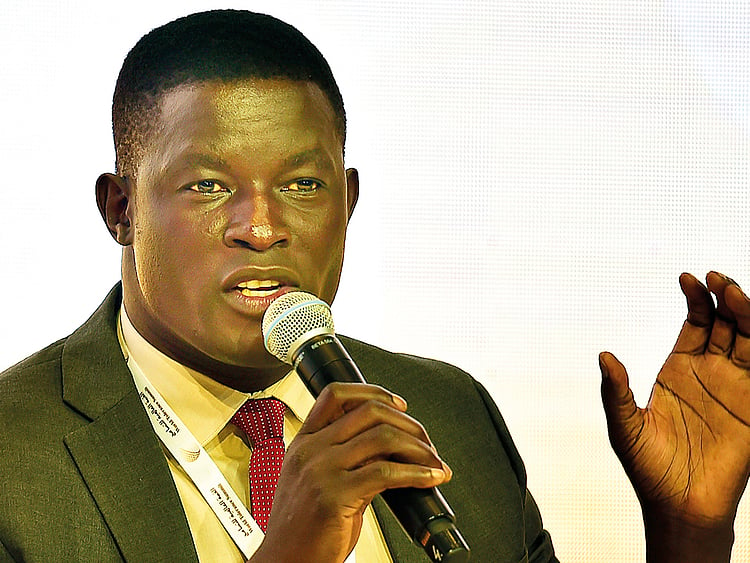‘I employed my own brother’s abductor’
Ugandan peace activist shares experience on role of education in fostering tolerance

Dubai: His exposition of the value of tolerance drew a thunderous applause. Victor Ochen, founder and executive director of the African Youth Initiative Network (AYIN), Uganda, who was part of the panel discussion on ‘Responsibility of educational institutions in ingraining qualities of tolerance in today’s youth’, said he preferred to differentiate between “educational institutions” and a “learning environment”, given the conditions in his own country.
He said, “Not much can be expected from schools in Uganda, which not only lacks the necessary educational infrastructure but is also caught up in conflict. We have to teach our kids at home.”
Having spent 20 years of his early life in a conflict zone, he said, “It is difficult for something good to come out of such circumstances. I struggled to remain calm, knowing over 66,000 children, including my own brother, were abducted to work as child soldiers.”
But determined to bring about change, he took it upon himself to integrate youth with a troubled childhood and set up the AYIN.
“In 2005, when I was trying to integrate some child soldiers and promote trauma healing, I came face to face with my brother’s abductor. I blacked out.”
Ochen said when he resumed his communication with the abductor, it suddenly struck him that he was “innocent” and was forced to do what he had done because of his circumstances.
“I asked him if he wanted a job. He agreed and I employed my own brother’s abductor. My brother is yet to return and I hope he will come back one day.”
The session was moderated by Suhail Gazi Al Gosaibi, founder and chairman of the Bahrain Foundation for Dialogue, Bahrain. The other panellists included Dr Abdullah Latif Al Shamsi, president and CEO, Higher Colleges of Technology, Shaikh Abu Bakr Ahmad, founder and chancellor, Jamia Markaz, India, Saleh Bin Sulaiman Bin Abdul Rahman Al Wohaibi, secretary general, World Assembly of Muslim Youth, Saudi Arabia.
Sign up for the Daily Briefing
Get the latest news and updates straight to your inbox
Network Links
GN StoreDownload our app
© Al Nisr Publishing LLC 2026. All rights reserved.